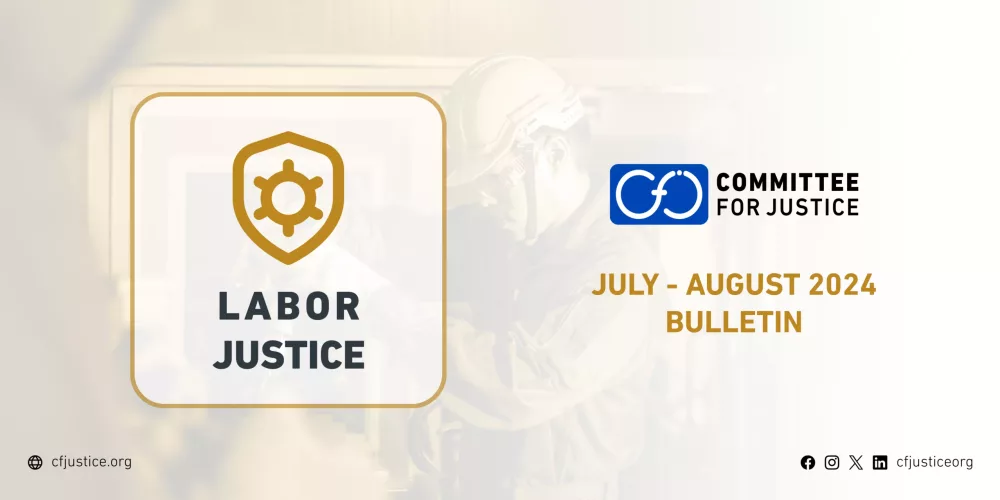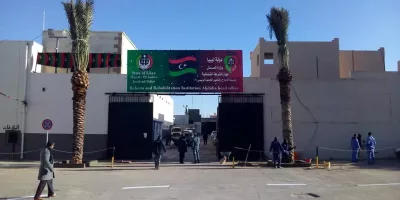The “Committee for Justice” (CFJ) has released its periodic bulletin on labor justice for July and August 2024, in which it addressed the political and economic developments in Egypt and their impact on workers’ conditions. The bulletin highlighted key labor movements, protests, and the violations workers faced during this period, in light of the ongoing economic crises that are worsening working conditions and increasing the burdens of daily life. These challenges have prompted workers to organize protests demanding improvements in their situation, met by the government with repressive responses.
– Economic developments and their impact on workers:
In recent months, several economic developments have increased pressure on workers, most notably the government’s decision to stop distributing free sugar on ration cards and raising fuel prices for the second time this year by 10% to 15%. These increases directly affected transportation and production costs, contributing to higher inflation rates and further escalating the cost of living. Additionally, rising cement prices negatively impacted the construction sector, which employs a significant number of workers.
Metro ticket prices also surged by up to 900% for vulnerable groups, such as people with disabilities, further exacerbating the hardships faced by poorer communities that rely on these essential services. In the healthcare sector, demands arose to halt the privatization of public health facilities, amid controversial statements from the Minister of Health regarding drug prices in Egypt, as the country grapples with a severe shortage of essential medications.
– Documentation of labor strikes and protests:
In response to these pressures, July and August witnessed several labor strikes and protests. Among the most notable was the strike by workers at “Al-Nasr Spinning, Weaving, and Knitting Company (Shorbagy)” in August, demanding better working conditions and the payment of bonuses. Sanitation workers in Dairut also went on strike, calling for the implementation of the minimum wage, while workers at “Venice Ceramics” factory protested their lack of health insurance coverage.
These protests, which were a reaction to government policies ignoring workers’ demands, were often met with government threats, including the use of national security forces to intimidate workers and prevent them from continuing their strikes.
– Security crackdowns on workers:
On August 25, security forces arrested several workers from “Samanoud Spinning” company after they announced a strike demanding the implementation of the minimum wage. The workers were forcibly disappeared for several days before reappearing later. Authorities have also continued to use prolonged pretrial detention against labor leaders, such as Maher Ahmed Huzayma, who has been repeatedly detained on successive charges since his arrest in 2013.
This bulletin underscores how the Egyptian government’s economic policies continue to negatively affect labor conditions, driving workers to protest in pursuit of their basic rights. Despite government efforts to suppress these movements, labor activists remain steadfast in their struggle for better working conditions and the achievement of their rightful demands
Skip to PDF content





